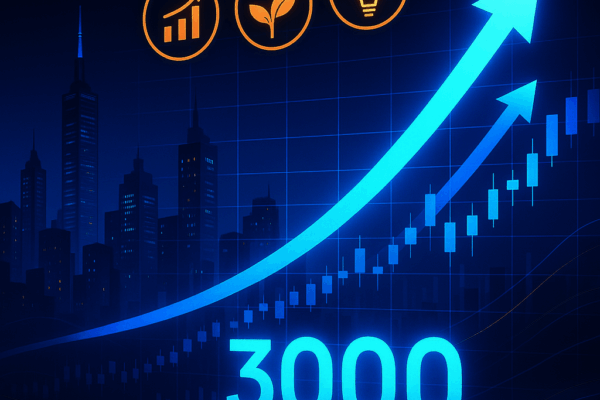At the Heart of Politics: Candidate Lee Jae-myung and the Shockwaves of the Supreme Court’s Ruling
On May 1st, South Korea’s political stage fell silent in a matter of minutes. Why did a single Supreme Court ruling on Lee Jae-myung, the Democratic Party’s presidential candidate, shake the entire political sphere to its core?
On May 1, 2025, the Supreme Court overturned the acquittal in Lee Jae-myung’s public election law violation case, a decision that came just nine days after the second trial had found him not guilty. This swift ruling sent shockwaves through the political landscape.
Lee Jae-myung responded immediately to the verdict. His statement, “The law is an agreement of the people, and the will of the people is the most important,” highlights his strategy of prioritizing public opinion over legal judgments. This approach goes beyond a mere legal issue; it reflects his effort to gain political support through direct communication with the people.
The Supreme Court’s rapid decision raised numerous questions. Delivered only nine days after the case was referred to the full bench, the unusually speedy ruling has sparked suspicions of possible political considerations behind the scenes.
This ruling is expected to profoundly impact Lee Jae-myung’s presidential campaign. Riding a wave of rising support—89.77% approval following the acquittal in the second trial—his political standing now faces uncertainty. Moving forward, the trial’s process and outcome, along with the public’s reaction, will be critical variables determining Lee Jae-myung’s political future.
The Lee Jae-myung Case: An Unprecedented Supreme Court Decision Speed and Its Hidden Implications
The Supreme Court’s decision delivered in just 9 days has sent shockwaves through the legal and political arenas. This extraordinary speed raises sharp questions throughout society. Could there be a political agenda concealed behind this ruling?
The Supreme Court’s ruling to remand the public official election law violation case against Lee Jae-myung, the Democratic Party presidential candidate, has drawn attention for several reasons. Most notably, it is highly unusual that the verdict came a mere 9 days after the case was referred to the full bench. This pace is far faster than typical Supreme Court procedures, sparking widespread suspicion.
Several theories have emerged to explain this swift judgment:
Political Pressure: Some speculate that the Supreme Court may have been influenced by political pressures, especially as the decision coincided with a surge in Lee Jae-myung’s presidential primary support.
Case Importance: Given it involves a presidential candidate, the Court might have deemed a rapid resolution imperative due to the national significance of the matter.
Legal Clarity: It’s possible the issues were clear-cut enough that further deliberation was unnecessary. Even so, 9 days remains remarkably brief.
Lee Jae-myung’s team has questioned the rapid ruling. His statement that “law is a consensus of the people, and the people’s will is paramount” appears aimed at emphasizing the political context over the legal judgment.
This Supreme Court decision, striking at the intersection of law and politics, is poised to ignite ongoing controversy and debate. It challenges not only Lee Jae-myung’s political fate but also raises fundamental questions about the rule of law and democracy in our society.
‘Public Will vs. The Law’ — Lee Jae-myung’s Strategic Message and Its Ripple Effect
The moment presidential candidate Lee Jae-myung emphasized the ‘will of the people’ right after the Supreme Court’s verdict overturning his conviction has ignited a heated debate in political circles. Could his message prioritizing public sentiment over legal judgment be the key to escaping this crisis?
Lee Jae-myung asserted, “The law is also an agreement of the people,” maintaining that the people’s will is more important than the court’s decision. This appears to be a strategic move to convert legal controversy into political support. However, this approach could prove to be a double-edged sword.
On one hand, this message can effectively galvanize his supporters and strengthen the narrative of ‘political retaliation.’ His base is likely to question the legal judgment and rally around him in defense.
On the other hand, such a stance risks criticism for undermining the rule of law. Opposition parties and some centrist voters may interpret it as an attempt to dodge legal accountability, potentially fueling resentment.
Ultimately, the success of Lee’s ‘public will first’ strategy depends on the evolving public opinion. How he navigates the delicate balance between legal rulings and democratic values—and how the public responds—will determine his political future.
Whether this strategy becomes a breakthrough or sparks new controversy will become clearer with time. One thing is certain: Lee Jae-myung’s response is set to significantly impact the political landscape ahead.
Political Shadows: The Fate of Lee Jae-myung’s Approval Ratings and Opposition Party’s Offensive
Lee Jae-myung’s soaring primary approval ratings have reached a turning point following this recent ruling. At the same time, the opposition party is seizing the opportunity to intensify pressure for his resignation, shaking up the political landscape. Will this cause cracks in the presidential race?
Lee Jae-myung’s political fate now stands at a crossroads in the courtroom. Once seemingly unstoppable with an overwhelming 89.77% primary support, the Supreme Court’s verdict has emerged as an unforeseen obstacle. Political circles are on high alert, closely watching how this ruling will impact his support base.
Meanwhile, the opposition, led by the People Power Party, is capitalizing on this moment to ramp up their offensive. They are demanding Lee’s resignation with strong political pressure—not just targeting the candidate himself but threatening to escalate into a broader crisis for the Democratic Party.
Lee’s camp maintains that “the will of the people is paramount” as they mount their defense, yet they find themselves caught in a difficult position between legal judgment and political calculation. With his political future hanging in the balance depending on upcoming court outcomes, both Lee Jae-myung and the Democratic Party appear to be seeking a cautious response strategy.
All eyes are on whether this turmoil will fracture the presidential race or, conversely, galvanize Lee’s support base. In this complex intersection of law and politics, political watchers are closely monitoring how voters’ perceptions may shift—and what ripples that might send through the nation’s future political landscape.
The Next Crucial Move That Will Determine Fate: The Intersection of Lee Jae-myung’s Trial and Public Opinion
At the crossroads where the people’s choice meets the judgment of the law, the upcoming trial at the Seoul High Court and the flow of public sentiment will ultimately steer Lee Jae-myung’s political destiny. Yet, no one knows the outcome just yet.
The political fate of Lee Jae-myung, the Democratic Party’s presidential candidate, stands at a critical juncture. Following the Supreme Court’s decision to remand, his violation case under the Public Official Election Act has returned to the Seoul High Court for reconsideration. This is set to send ripples far beyond a mere legal proceeding, shaking the entire political landscape.
Lee maintains his stance that “the law is also an agreement of the people,” appealing for public support. This appears to be a strategic move to secure political legitimacy outside the courtroom. However, whether this approach will sway judicial decisions remains uncertain.
Meanwhile, the political ramifications of the trial’s verdict are drawing keen attention. A guilty verdict at the Seoul High Court could deliver a fatal blow to Lee’s presidential campaign. Conversely, an acquittal could serve as a powerful boost to his political standing.
At this pivotal moment, the direction of public opinion is also a crucial factor. How the people interpret this case—whether as a legal issue or a political attack—will profoundly influence Lee Jae-myung’s fate.
The unfolding courtroom battle and shifts in public sentiment will not only shape Lee’s political journey but also leave a significant mark on South Korea’s political terrain. The complex equation where law, politics, and public will intersect remains unresolved. We must watch this historic moment with close attention.




